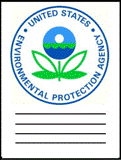United States Environmental Protection Agency

United States Environmental Protection Agency: Publications
Document Type
Article
Date of this Version
9-1990
Citation
United States Environmental Protection Agency. Office Of The Administrator (A-101F6). 171 R-92-00S April 1992
Abstract
Conversion of wetlands in Iowa, Kansas, Missouri, and Nebraska into agricultural dry lands in the past several decades has occurred as a means to obtain profit from what landowners would otherwise consider unprofitable land. This activity has resulted in substantial losses of wetlands valued for their unique ability to mitigate flood and storm damage, control erosion, discharge and recharge groundwater, improve water quality, and support a wide diversity of fish, wildlife, and vegetation.
Utilizing fish, wildlife, and vegetation from wetlands for profit is a way for wetland owners to recognize the value their wetlands add to their property. Landowners then have an incentive to preserve rather than convert their wetlands.
The alternative profitable usages of wetlands evaluated in this study are categorized for discussion into forest products, wildlife, native grasses and herbs. Lists were compiled for the wetland plant species that are potentially most useful and profitable. Some of the most marketable species are described in the appendices. Wherever possible, sample prices are included for either the final marketable product or the cost of planting.
Information is also included on the management of wetland areas, marketing strategies, and additional sources of information.
Included in
Earth Sciences Commons, Environmental Health and Protection Commons, Environmental Monitoring Commons, Other Environmental Sciences Commons


Comments
Used by permission.